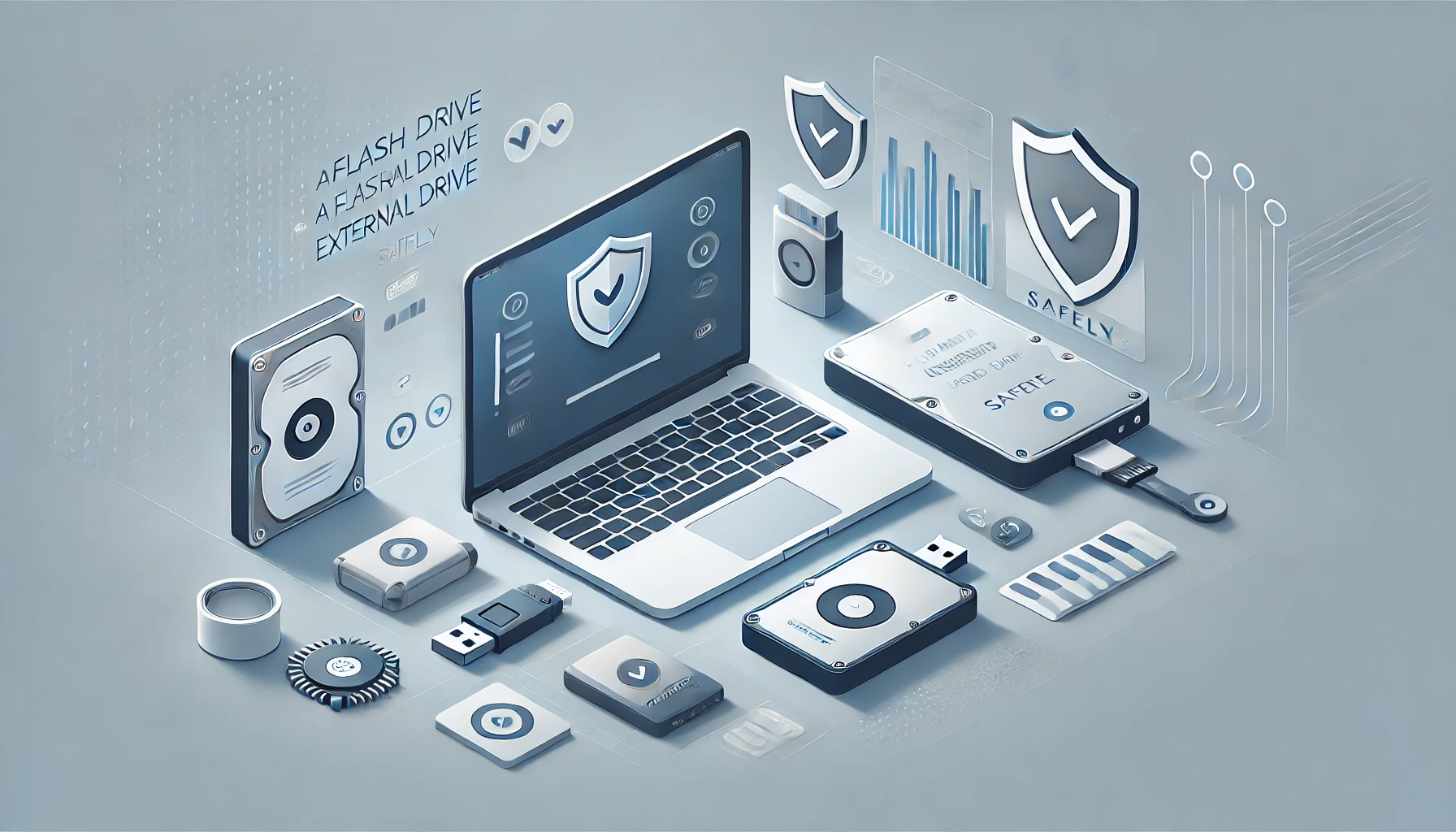How to Choose the Right VPN for Your Needs: A Comprehensive Guide
Choosing the right VPN can seem overwhelming given the many options available. Users often need to consider factors like speed, security, and ease of use. To find the best VPN, individuals should prioritize what features matter most to their specific needs, such as privacy protection, device compatibility, or streaming capabilities.
Understanding the basic functions of a VPN is crucial. It not only provides online security by encrypting data but also allows users to access restricted content. Each VPN has unique features tailored to different types of users, whether they are looking for a solution for remote work, browsing, or bypassing geo-restrictions.
By assessing personal requirements and researching available options, anyone can make an informed decision. This article will guide readers through the key features to look for, making it easier to select a VPN that aligns perfectly with their objectives.
Understanding VPNs
VPNs are tools that create a secure connection between a user’s device and the internet. They help keep online activity private and can improve security while browsing. This section will explore what VPNs are, their benefits, and how they enhance privacy and security.
What Is a Virtual Private Network?
A Virtual Private Network (VPN) is a service that creates a secure, encrypted connection over a less secure network, like the internet. It works by routing a user’s internet traffic through a remote server operated by the VPN provider.
When a user connects to a VPN, their IP address is masked. This means that websites and services cannot easily track their real location. VPNs can help users bypass geographical restrictions, allowing access to content available only in certain countries.
Benefits of Using a VPN
Using a VPN provides several advantages. First, it enhances privacy. By encrypting data, it makes it difficult for hackers and third parties to intercept or view online activities.
Another benefit is the ability to bypass internet censorship. Users in countries with restricted access to certain websites can connect to a server outside their country.
Finally, a VPN can protect sensitive information on public Wi-Fi networks. This is crucial when connecting to open networks in places like cafes or airports.
How VPNs Enhance Privacy and Security
VPNs enhance privacy and security in important ways. They encrypt the data exchanged between the user’s device and the VPN server.
This encryption makes it hard for anyone to read the data. Even if hackers intercept the data, they cannot easily decipher it.
Additionally, VPNs prevent Internet Service Providers (ISPs) from tracking users’ browsing habits. This adds an extra layer of privacy.
Using a reputable VPN provider can significantly reduce the risk of data breaches, especially when accessing sensitive information online.
Determining Your VPN Needs
Choosing the right VPN involves understanding specific needs. This requires a careful look at online activities, security needs, and access to restricted content.
Assessing Your Online Activities
Users should start by evaluating their typical online tasks. This could include activities like browsing, streaming, or file sharing. Each of these activities may require different levels of VPN performance.
- Browsing: A basic VPN can suffice, as the user may just need privacy.
- Streaming: High-speed connections are essential for smooth playback.
- File Sharing: A VPN with robust security features is crucial to protect sensitive data.
Choosing a VPN that enhances these activities without slowing down the experience is key. Users should consider how much data they use and whether they need a reliable connection from multiple devices.
Identifying Security Requirements
Security requirements can vary significantly based on user circumstances. Those working with sensitive information, such as corporate data or personal details, require a VPN that prioritizes security.
- Encryption Standards: Look for a VPN that uses strong encryption protocols. Options like OpenVPN or WireGuard are recommended.
- No-Logs Policy: A strict no-logs policy ensures that user activities are not recorded.
- Additional Features: Tools like a kill switch or split tunneling enhance security.
Understanding the level of security needed will help narrow down available options and find a suitable match.
Considering Access to Geo-Restricted Content
Many users want to access content that may be restricted in their region. Not all VPNs can bypass geographic blocks effectively.
- Server Locations: A vast network of servers in various countries increases the chances of unblocking content.
- Special Features: Some VPNs include features specifically designed for streaming, like Smart DNS.
- Reliability: Users should research reviews about a VPN’s success in unblocking content on services like Netflix or Hulu.
Selecting a VPN based on these criteria will support accessing desired content without hindrance.
Selecting a VPN Provider
Choosing the right VPN provider requires careful consideration of several important factors. Key elements include the protocols used, the logging policies in place, the potential impact on internet speed, and compatibility with devices. Here is a closer look at these factors.
Evaluating VPN Protocols
VPN protocols are essential for ensuring secure and efficient connections. Common protocols include:
- OpenVPN: Highly recommended for its strong security and flexibility. It is open-source and widely supported.
- IKEv2/IPSec: Known for its speed and stability, especially on mobile devices.
- L2TP/IPSec: Offers good security but can be slower due to double encapsulation.
- WireGuard: A newer option that is fast and easy to configure, but still gaining traction.
When selecting a provider, one should check which protocols are available and supported. Some may prioritize security over speed, while others aim for a balance. Users should consider their specific needs, such as streaming, gaming, or browsing safely.
Investigating Logging Policies
The logging policy of a VPN provider is crucial for maintaining privacy. A strict no-logs policy ensures that no user data is stored. This is important for users who want to keep their online activities private.
Key questions include:
- Does the provider keep connection logs?
- Are any activity logs maintained?
- What data is collected, if any?
Providers that conduct regular audits of their policies and procedures further establish trust. Users should look for transparency and certifications from independent reviewers.
Understanding the Impact on Internet Speed
Internet speed can be affected by several factors when using a VPN. These include the protocol used, server location, and overall server load.
Providers often advertise high speeds, but real-world performance can differ. Before selecting a provider, users should consider:
- Server Locations: Closer servers typically yield better speeds.
- Bandwidth Limits: Unlimited bandwidth is preferable for streaming and downloads.
- Impact of Encryption: Stronger encryption can slow down speeds, so users need to find a balance.
Testing speeds with different providers can help users make an informed decision before committing.
Checking Device Compatibility
Device compatibility is an important consideration for users who want to connect multiple devices. Not all VPNs support the same platforms. Users should ensure the chosen VPN works on:
- Desktop Operating Systems: Windows, macOS, and Linux.
- Mobile Devices: iOS and Android.
- Routers and Smart Devices: Compatibility with routers enhances overall security for home networks.
Some providers offer browser extensions as an additional option. Users should review the number of simultaneous connections allowed under one account, as this can vary significantly between providers.
Additional Features to Consider
When choosing a VPN, several additional features can greatly enhance security and usability. Features like kill switches, multi-factor authentication, and customer support play essential roles in providing a reliable VPN experience.
The Importance of Kill Switches
A kill switch is a crucial feature that disconnects the internet if the VPN connection drops. This prevents data leaks, ensuring that sensitive information remains protected. When the VPN is active, all internet traffic is routed through it. If the connection is lost, a kill switch stops all traffic, protecting the user’s data from exposure.
Benefits of a Kill Switch include:
- Data Security: Prevents accidental exposure of sensitive information.
- Uninterrupted Protection: Maintains user privacy at all times.
- Peace of Mind: Users can trust that their data is secure.
It’s vital to confirm that the VPN provider offers a reliable kill switch and check if it functions effectively during unexpected disconnections.
Multi-Factor Authentication
Multi-factor authentication (MFA) adds an extra layer of security when accessing a VPN account. This method requires users to provide two or more verification methods. Common options include a password along with a one-time code sent to a mobile device.
Advantages of Multi-Factor Authentication:
- Enhanced Security: Reduces the risk of unauthorized access.
- Identity Verification: Confirms that the user is who they claim to be.
- Flexibility: Can be tailored to various security needs.
Users should choose a VPN that provides MFA, as it significantly strengthens account protection against hacking attempts and increases peace of mind.
Availability of Customer Support
Good customer support can make a big difference when using a VPN. When issues arise, having quick access to knowledgeable support staff is essential.
Key Aspects of Customer Support:
- Multiple Contact Options: Email, chat, and phone support should be available.
- 24/7 Availability: Round-the-clock support ensures help is always accessible.
- Knowledgeable Staff: Support teams should be well-trained to assist with technical problems.
Selecting a VPN with dependable customer support can improve the user’s experience, ensuring that help is readily available whenever it is needed.
Free vs. Paid VPN Services
Choosing between free and paid VPN services involves understanding the differences in service limitations, cost-benefit ratios, and privacy implications. Each option serves different needs and comes with its own set of advantages and drawbacks.
Comparing Service Limitations
Free VPNs often come with restrictions that can affect their performance. Users may experience limited data usage, slower speeds, and fewer server locations. For example, some free services may only allow a few hundred megabytes per month, making them unsuitable for streaming or large downloads.
In contrast, paid VPNs generally offer unlimited data, faster connections, and access to a wider range of servers. This can enhance user experience, particularly for activities that require stable connections like video calls or online gaming. It is essential to consider what type of online activities will be conducted when choosing a VPN service.
Analyzing Cost-Benefit Ratios
The choice between free and paid VPN services often hinges on an evaluation of value. Free options might seem attractive, but they may lack essential features like customer support, advanced security protocols, and updated technology.
On the other hand, paid VPNs come with various pricing plans usually starting from about $5 to $15 per month. These services often include additional features, such as multi-device support, which may justify the cost. Users should assess whether the benefits of a paid service align with their specific needs and budgets before making a decision.
Considering Privacy Implications
Privacy is another critical factor when choosing a VPN. Free VPNs might monetize their services by tracking user data or displaying ads. Some providers have been known to sell user data, raising serious concerns about user anonymity and security.
Paid VPNs usually provide better privacy protections and are less likely to log user activity. They often comply with stricter privacy regulations and use robust encryption methods. Users must weigh the importance of privacy in their internet usage to make an informed choice about which type of service to select.
Setting Up Your VPN
Setting up a VPN involves a few key steps that ensure a secure and functional connection. Users should focus on installing the right software, configuring settings carefully, and testing the connection to verify everything works as expected.
Installing VPN Software
First, users need to download the VPN software from a reliable source. Most VPN providers offer apps for various devices such as Windows, macOS, iOS, and Android.
- Choose the Right App: Verify compatibility with the operating system.
- Install: Double-click the installer file and follow the on-screen instructions. This process is usually straightforward.
- Create an Account: After installation, users must create an account or log in if they already have one.
It’s essential to keep software updated for security and access to new features.
Configuring VPN Settings
Next, users should configure the VPN settings to meet their specific needs. Common settings include:
- Protocol Selection: Choose between protocols like OpenVPN, IKEv2, or L2TP/IPsec based on speed and security preferences.
- Server Selection: Users can select a server in a desired location to improve speed or access content.
- Kill Switch: Activate this feature to block internet access if the VPN connection drops, ensuring data remains secure.
Adjusting these settings helps tailor the VPN experience to each user’s requirements.
Testing Your VPN Connection
Finally, testing the VPN connection is crucial to ensure it operates correctly. Here’s how to test:
- Connect to the VPN: Launch the app and connect to a selected server.
- Check IP Address: Use online tools to view the current IP address. It should reflect the VPN server location.
- Run Speed Tests: Use a speed test website to measure connection speed. This ensures that the VPN doesn’t unduly slow down internet access.
Troubleshooting issues, such as connection drops or speed problems, can also be performed during this testing phase.
Case Study: Selecting the Ideal VPN for a Remote Developer
Background: Tom, a remote software developer, needed a VPN that offered robust security, fast connection speeds, and the ability to access region-restricted content while working with clients worldwide.
Problem: Tom struggled to find a VPN that balanced speed, security, and cost, while also supporting multiple devices.
Solution: After researching, Tom chose a VPN with strong encryption, a no-logs policy, and high-speed servers. He also ensured it supported multiple simultaneous connections and had servers in regions he frequently needed to access.
Outcome: Tom improved his workflow with secure, fast internet access, enabling him to work efficiently without compromising security. This case highlights how tailored VPN selection can meet specific professional needs.
Maintaining VPN Performance
To ensure a VPN performs well, users must focus on regular updates and actively monitor data usage. These steps play a crucial role in optimizing connection speed and reliability. Here are the key practices that help maintain VPN performance.
Regular Updates and Patches
Keeping VPN software up-to-date is essential for strong performance. VPN providers regularly release updates that fix bugs, enhance security, and improve speed. Users should check for updates at least once a month.
Key actions for updates include:
- Enable automatic updates: This ensures that the latest features and security measures are installed without manual intervention.
- Review patch notes: Understanding what each update includes helps users gauge improvements and changes.
Failing to update can lead to vulnerabilities, which may slow down their connection. Thus, maintaining up-to-date software is a proactive step towards optimal VPN performance.
Monitoring Data Usage
Regularly monitoring data usage helps users identify any unusual spikes in traffic that can affect performance. VPNs often have limits on data, which can impact speed if exceeded.
To effectively monitor data:
- Use built-in tools: Many VPN apps provide tools to track usage. Utilize these features to stay informed.
- Set alerts: Users can set warnings for when they approach data limits, allowing them to adjust their usage accordingly.
By keeping track of data consumption, users can avoid throttling and maintain the speed they expect from their VPN service. Regular monitoring is a strong practice to ensure optimal connectivity and performance.
Frequently Asked Questions
Choosing the right VPN can be confusing. Many factors can impact a person’s decision, including features, security, and pricing. The following questions address common concerns about VPN services.
What should I consider when selecting a VPN service?
When selecting a VPN, a person should consider speed, server locations, and connection stability. It is also essential to check privacy policies and data logging practices.
What are the benefits of using a VPN at home?
Using a VPN at home offers increased security for online activities. It helps protect personal information from hackers and allows for private browsing of websites.
What features are most important in a VPN for mobile devices?
For mobile devices, important features include automatic connection, app compatibility, and data usage management. A user-friendly interface can also enhance the mobile experience.
How do VPNs enhance online security and privacy?
VPNs encrypt internet traffic, making it difficult for unauthorized users to access data. They also hide the user’s IP address, providing anonymity while browsing.
What are the differences between paid and free VPN services?
Paid VPN services typically offer better speed, security, and customer support. Free services may have limitations on data usage and may not provide the same level of protection.
How can I determine if a VPN is trustworthy?
To determine a VPN’s trustworthiness, one can look for independent reviews and user feedback. It is also advisable to check for transparency in their privacy policies and data handling practices.





